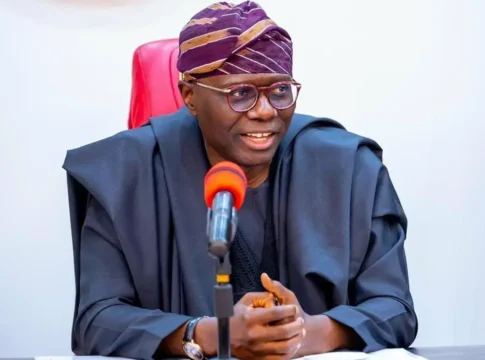Lagos State Governor Babajide Sanwo-Olu has called for a shift in Nigeria’s export strategy to help revive the country’s struggling economy. Speaking at the 36th convocation ceremony of Yaba College of Technology in Lagos, Sanwo-Olu emphasized the urgent need to increase Nigeria’s export capacity to address the country’s ongoing foreign exchange crisis. He warned that the country’s heavy reliance on crude oil and gas exports has harmed its economic development and limited its potential.
Sanwo-Olu’s lecture, titled Developing Exportable Alternatives for Nigeria’s Economic Recovery, explained that Nigeria’s over-dependence on raw materials for foreign exchange earnings has hindered long-term growth. “This crisis takes two main forms: the monopoly of crude oil and gas on our foreign exchange earnings,” he said. “Our over-dependence in this way has done far more harm than good to the economy and our mindsets as a people.”
READ MORE: MTN Powers Nigeria’s Economy, Contributing 7% to GDP, Says CEO Karl Toriola
The governor acknowledged the efforts of President Bola Tinubu’s administration to improve Nigeria’s export capacity and noted that this focus will be vital for the nation’s recovery. “As we gradually but steadily make our way into the phase of recovery, one of the most important things we can do is to increase the focus on our export potential,” he added.
Sanwo-Olu also stressed the importance of moving beyond raw material exports. He pointed out that countries that succeed in the global market are those that add value to their natural resources before exporting. “There is no value or pride in exporting raw materials to the world. The countries that prosper are the ones that process and add value to their resources,” he stated.
The governor’s remarks highlighted the need for a shift towards exporting processed goods, especially in agriculture. He called for a broader strategy that focuses on value-added exports, which could help Nigeria take full advantage of its resources and secure a stronger place in the global economy.




